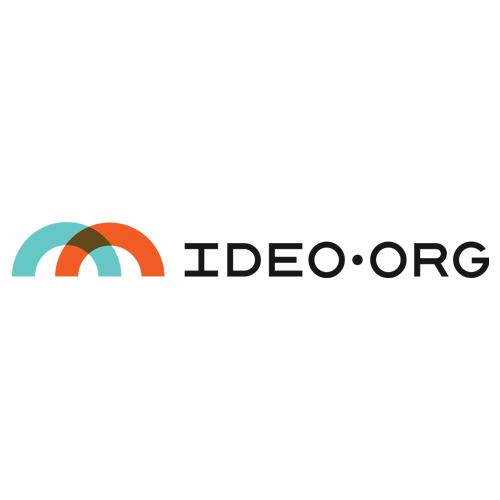The project began with an innovative idea: an app providing community health workers (CHWs) and women in Rohingya refugee camps in Bangladesh with information about menstrual regulation (MR, as abortion is known in Bangladesh).
In spring 2018, Ipas partnered with IDEO.org, an organization that uses human-centered design to develop solutions to complex social challenges around the world. A team of designers and data collectors—including Ipas’s Tam Fetters, senior researcher, and Shamila Nahar, senior health systems advisor, Bangladesh—participated in IDEO.org’s design boot camp in Nairobi and conducted design research in camps near Cox’s Bazar. They interviewed over 70 women and men about their cultural and religious beliefs, including:
- Rohingya refugees
- Imams (Muslim religious leaders, who traditionally have not supported family planning and abortion)
- Mahjis (influential Rohingya community leaders)
- Bangladeshi clinical service providers (doctors, nurses and paramedics)
- CHWs
“Whatever our husbands say, we have to do”
The team learned that Rohingya men typically look to imams, mahjis and other men for guidance. Rohingya women generally seek permission from their husbands. “Most of us are forced by our husbands to become pregnant,” said one 25-year-old married woman. “Whatever our husbands say, we have to do.”
“Wives have to pamper their husbands before introducing the conversation about family planning.” —23-year-old married woman
A transformative shift
Some imams were receptive, or even supportive, of family planning or MR. “Life is hard here,” one imam said. “It goes against the Quran, but now we are in a troubled condition, so you should go to the hospital and take the advice of the doctor.”
Men expressed feeling listless.“I was a teacher in Burma; now I read old textbooks in the mornings and then roam around in the afternoon,” said one married man. “I have nothing to do here! What do I do?”
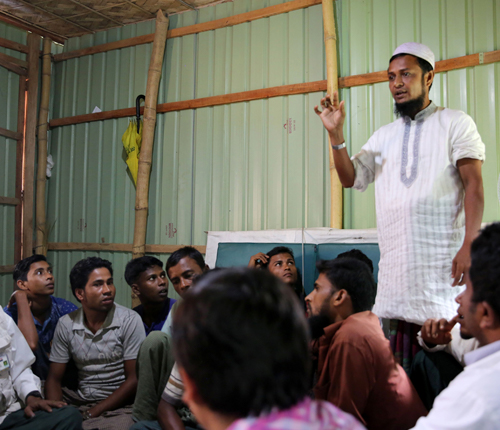
The team saw an opportunity. They abandoned the app idea and began to prototype a board game about family planning, Kele-Kele Shiki—Rohingya for “learning through playing.” By involving imams, mahjis, doctors and CHWs, it aims to reach women with information about—and gain men’s acceptance of—family planning, including MR.
“Many times during interviews with men in the community, they told us that the health and safety of their families was the most important thing for them. Because people are now living in cramped quarters within the camp, as opposed to the more rural settings of Rakhine State, they are finding themselves having to make different decisions in order to maintain a healthy family, and they’re open to new ideas about how to do that.” —IDEO.org Senior Partnerships Associate Brynn Kolada
Kele-Kele Shiki
An imam, mahji and a doctor facilitate the men’s session, and a CHW facilitates the women’s session; both groups receive the same information. The game has religious components, added with the imams’ input, and its messaging is mindful of men’s attitudes.
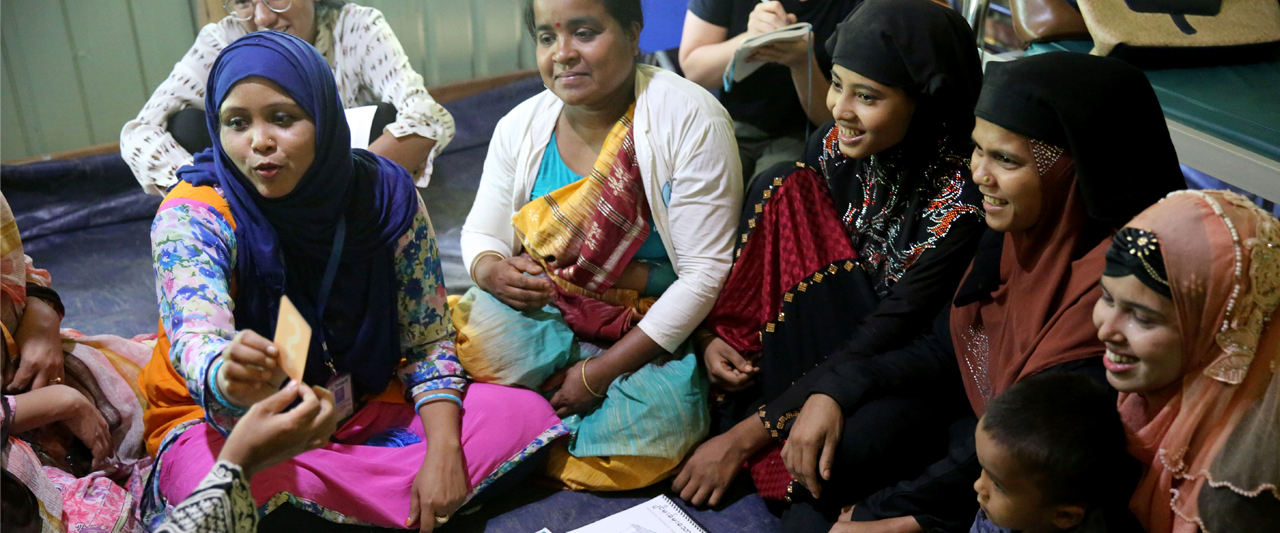
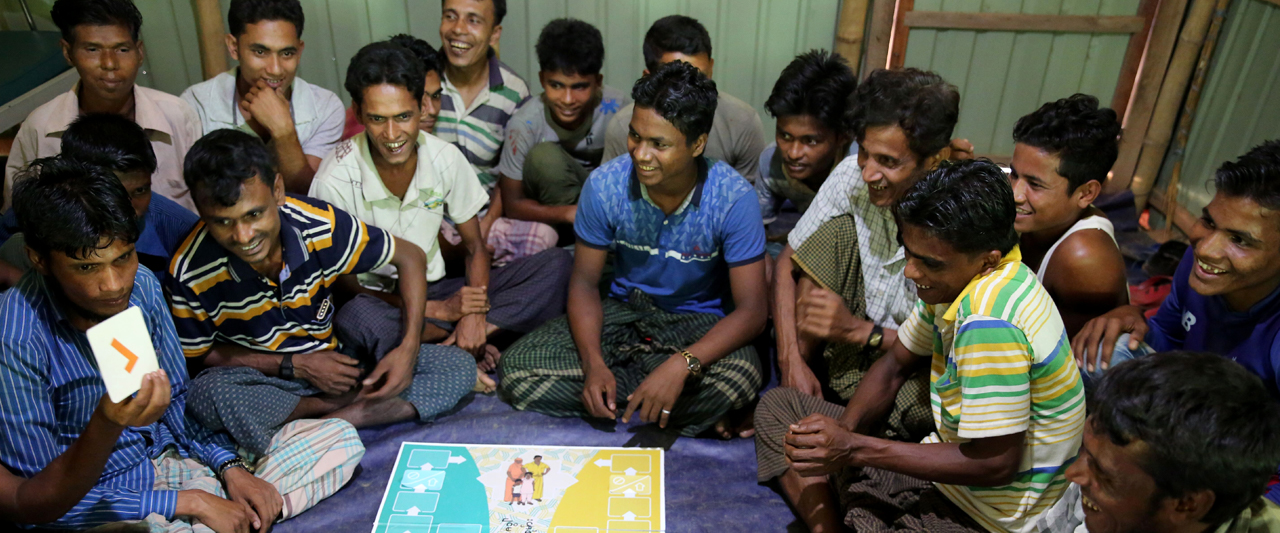
After playing, husbands and wives go home to discuss whether family planning is right for them, aided by a Decision Guide.
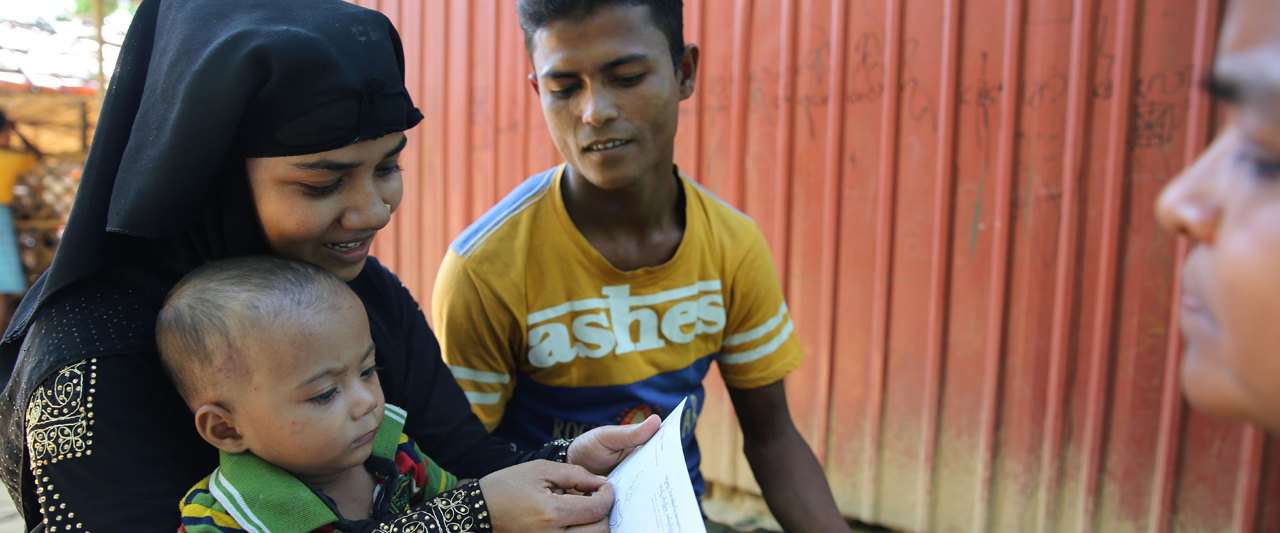
Finally, a CHW counsels the wife or couple on methods, and wives can go to the clinic. Husbands keep the Decision Guide to spread the word to other men.
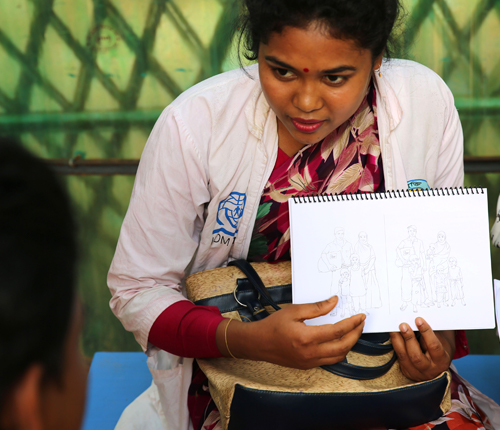
Kele-Kele Shiki helps to bring Muslim faith-based perspectives to conversations about sexual and reproductive health. The project is currently in its evaluation phase, but Fetters hopes that the model might be replicated in other settings, particularly humanitarian areas with a majority Muslim population.
“By involving men in sexual and reproductive health decisions, those decisions can be shared—rather than covert or forced—and potentially improve women’s autonomy and strengthen their voices,” Fetters said.
Photos courtesy of IDEO.org
PARTNER SPOTLIGHT
IDEO.org uses human-centered design to develop solutions to complex social challenges around the world.
For more information, contact [email protected].


